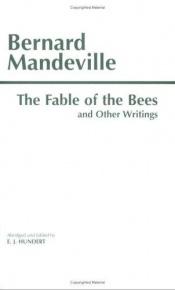The Fable of the Bees
Blurb
The Fable of The Bees: or, Private Vices, Public Benefits is a book by Bernard Mandeville, consisting of the poem, The Grumbling Hive: or, Knaves turn’d Honest, along with prose discussion of the poem. The poem was published in 1705, and the book first appeared in 1714. The poem suggests many key principles of economic thought, including division of labor and the "invisible hand", seventy years before these concepts were more thoroughly elucidated by Adam Smith. Two centuries later, the noted economist John Maynard Keynes cited Mandeville to show that it was "no new thing ... to ascribe the evils of unemployment to ... the insufficiency of the propensity to consume", a condition also known as the paradox of thrift, which was central to his own theory of effective demand.At the time, however, it was considered scandalous. Keynes noted that it was "convicted as a nuisance by the grand jury of Middlesex in 1723, which stands out in the history of the moral sciences for its scandalous reputation. Only one man is recorded as having spoken a good word for it, namely Dr. Johnson, who declared that it did not puzzle him, but 'opened his eyes into real life very much'."

 English
English Español
Español Deutsch
Deutsch










Member Reviews Write your own review
Be the first person to review
Log in to comment